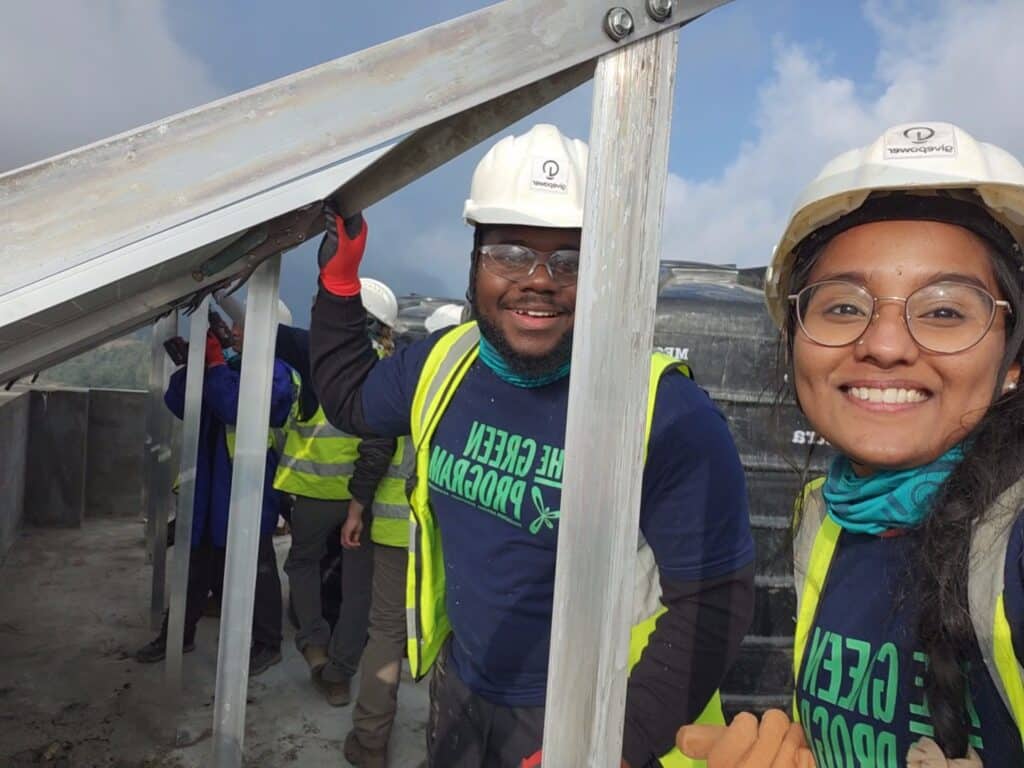
Meet Hirani Sattenapalli
Nepal 2023
Shine On Scholarship Recipient
Carnegie Mellon University
Electrical & Computer Engineering
Graduation Year: 2024
“[TGP] allowed me to pursue an electrical-engineering focused project that had roots and a focus in sustainability, which was, overall, a beautiful opportunity to connect my undergraduate degree with something larger.”
I am a senior majoring in Electrical & Computer Engineering at Carnegie Mellon University. I had a number of interests before beginning college; I had a very strong interest in environmental science as well as physics and engineering in general. In terms of Environmental science, I was fascinated by the processes that govern our surroundings, and how large of an impact human decisions can have on the environment. Even a small decision can impact an entire ecosystem and alter the way multiple species interact with the environment.
During my freshman year, I took Intro to Electrical and Computer Engineering. Before deciding on a major/ path, I researched other areas in great detail, especially Environmental Engineering. After taking an Introduction to Electrical and Computer Engineering course in my freshman year, I realized there were great applications of ECE in many different areas. I wanted to pursue ECE so that I could choose to apply those skills to a specific department/ area.
There is a great focus on new and emerging technologies that can support our current infrastructures more sustainably (for instance, the supply of electricity produced from more sustainable practices). So many decisions in engineering must be made while being environmentally conscious and while having a strong and deep understanding of the impact of such decisions on the rest of the world. With this in mind, I was always drawn to environmental science and sustainable technologies. The scope for this is immense and this is one of the primary motives that drew me to TGP.
The GREEN Program focuses on providing students with real-world project experience and giving them opportunities to gain skills beyond a classroom or textbook setting. When I first heard about TGP’s Nepal program (Microgrid Systems for Rural Development), I was very excited as this was a perfect match for me. This program focused on the installation of a microgrid system to support the larger goal of building back the electrical infrastructure with sustainable technologies. It allowed me to pursue an electrical-engineering-focused project that had roots/ a focus on sustainability, which was, overall, a beautiful opportunity to connect the undergraduate degree with something larger.
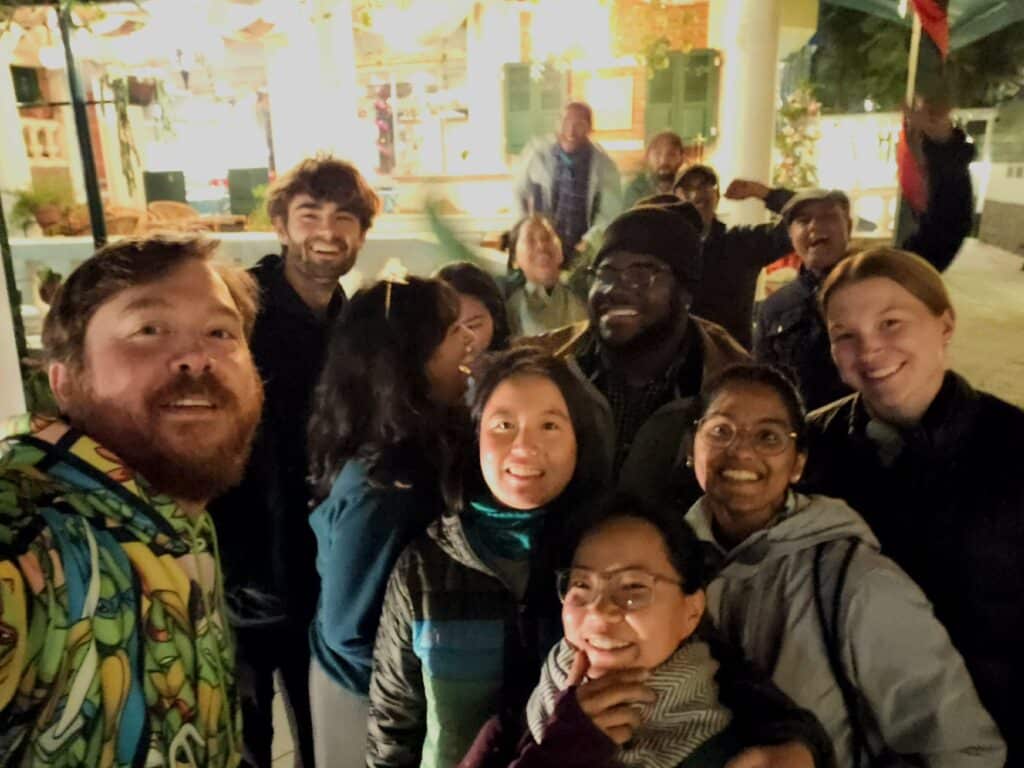
When I was first awarded the Shine On Scholarship, I felt relieved for a moment and then grateful to have been awarded such a large amount to fund this experience. I had really wanted to go on the Nepal study abroad program while in college. It was a huge dream of mine to pursue a study abroad program during my undergraduate years. Once I heard about the Nepal program, I was very excited about the prospects of living in a different country, being able to see the Himalayas, and especially, building an entire microgrid system by hand.
However, I was primarily concerned about funding, as I did not plan to invest such a large amount into an external program while in college. This might have been more manageable once in industry, but once I received the Shine On Scholarship, I felt very relieved as it made it possible for me to go on the program during my senior year of college.
The enrollment process was fairly straightforward when signing up for the program. I filled out the application and received a response fairly quickly (2-3 week timespan). Once I accepted a program, the other documents to fill out (regarding citizenship and international travel) required some time; however, they were also straightforward so I did not face any significant challenges with the process.
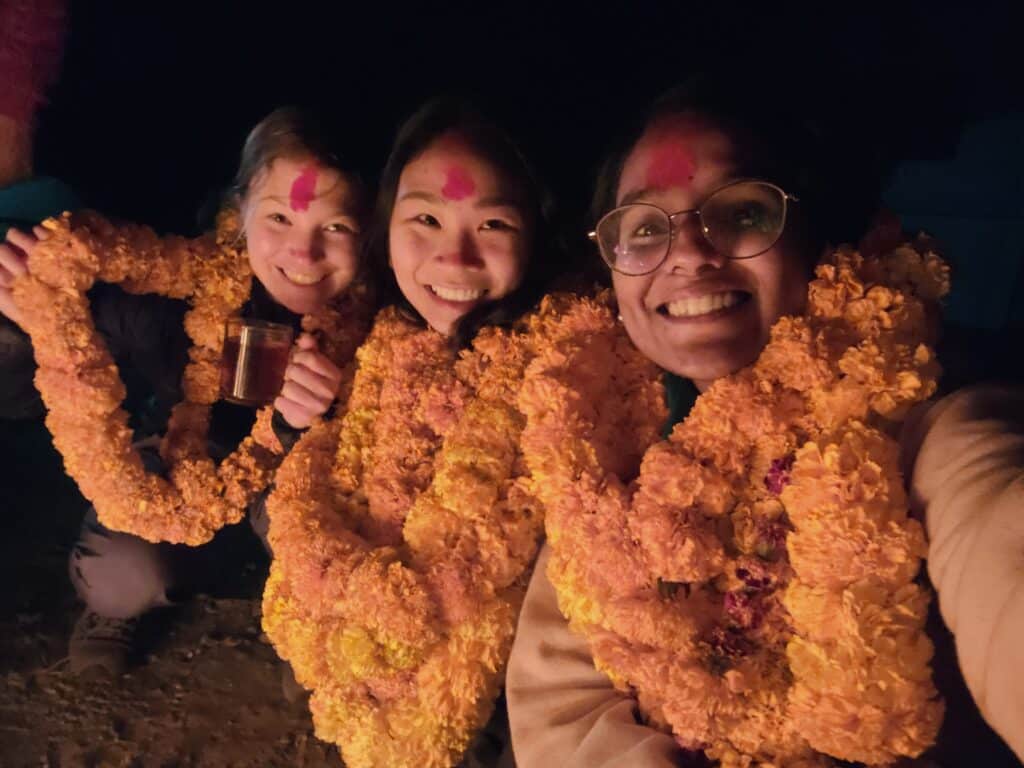
The Importance of Global Experiences
I didn’t have too many expectations before coming to the program. I had never experienced a short-term study abroad or any sort of international travel program (with a group of people I had never met before). Before coming to the program, I expected to learn about Nepal, the culture, the country’s history, and more about how to build solar panels and other environmentally conscious/ benefitting projects. I was also expecting to learn about the science behind solar panels – how they work and how they are set up in real-world applications.
I came in with some background knowledge of solar panels and environmentally sustainable energy sources. However, I didn’t know much about how the panels connect with the rest of the system, such as the grid, and how they power homes and buildings. In terms of learning in the classroom and gaining practical experience during the program, we gained knowledge from the lectures and through the process building the microgrid system itself. Exploring Kathmandu and visiting the UNESCO heritage sites was a great way to learn about the city, its culture, and its history.
What I experienced was exceptional; it was beyond anything I would have experienced if I had traveled to Nepal alone as a tourist. Being able to live in a village and experience, truly, a life in the mountains, in such a remote area with no cell service and almost no technology, was just beautiful. I don’t think I can ever get over how clear the sky was at night, the number of stars I could see, and simply how quiet it was. The absolute stillness and the quiet is something I’ll remember and treasure deeply.
Global experiences, like The GREEN Program, are important for students to experience. Exploring a different country, area, culture, and lifestyle is an extraordinary opportunity not many get to take, especially in a group setting, where you can learn about different aspects of life with people who are also deeply interested in learning about the world. For every student, learning about the world is important. For underrepresented students, a global experience can provide a different perspective and be an attitude-shifter. Experiencing a different culture and meeting new people with different experiences, can significantly affect your attitude towards certain topics.
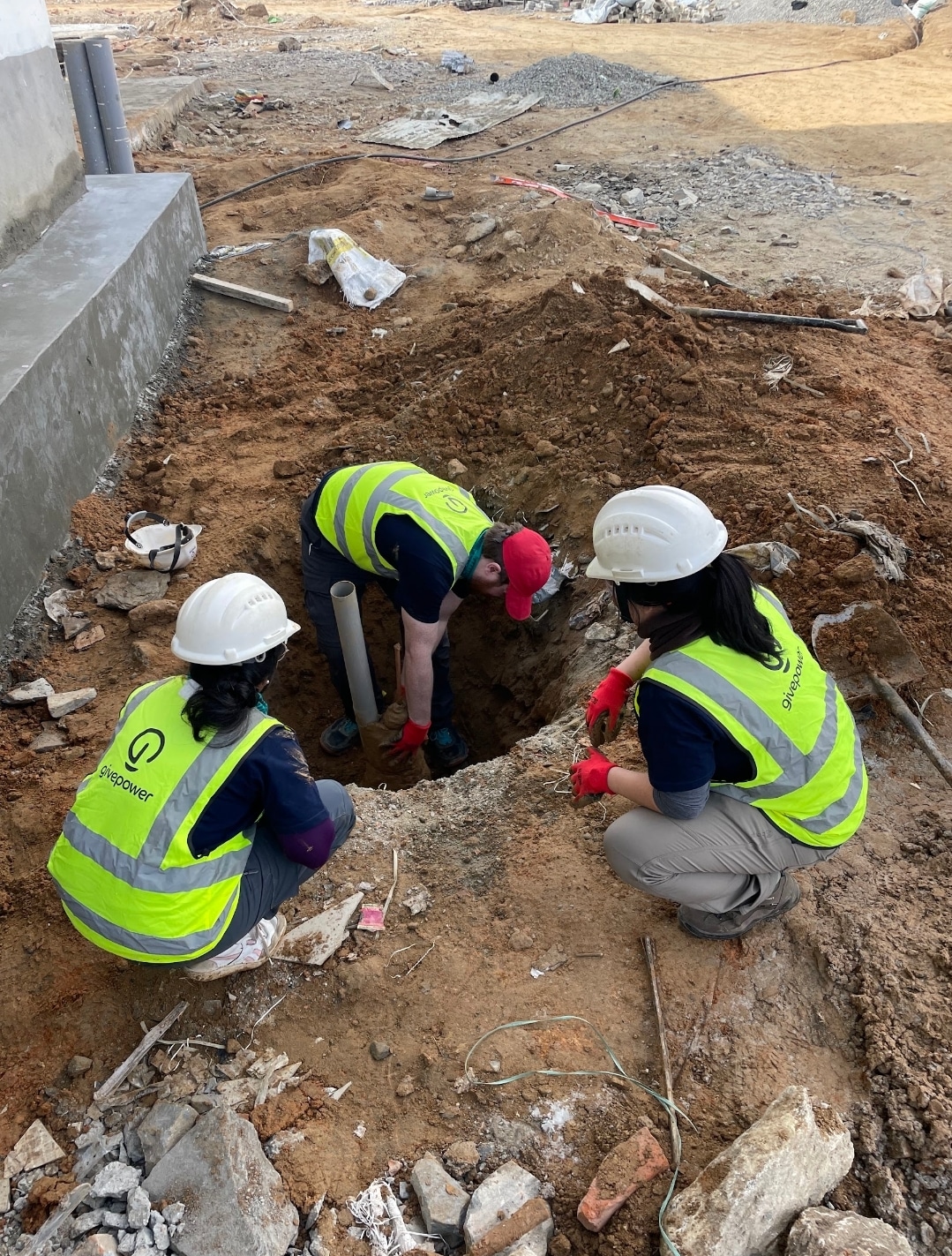
The Capstone Project
Learning by working on the TGP project was a great educational experience. There are a lot of skills students can pick up while working by hand and a lot of knowledge that students can gain when connecting a whole system. Building the microgrid system, from top to bottom, was a really great experience that I’m very grateful for. Working in different stations and on different parts of the whole system helped bring the project to life. My biggest takeaways from the program are the beauty of nature that I was able to experience and the friendships that I made during the trip.
Our Capstone project was on using solar panels to reduce the effect of urban heat islands on lower-income communities. Urban heat islands occur primarily in large cities, where vehicles, air-conditioning units, buildings, and industrial facilities emit significant heat into the environment. Our idea was to use solar panels and reactive cooling with the solar panels on the rooftops of buildings in urban areas to cool heat islands.
Solar panels are not perfectly efficient. They produce a lot of heat that leaks into the environment and are not perfect solutions for urban heat islands. Hence, we proposed reactive cooling, which helps cool the solar panels, so they can contribute to better sustainability practices (eco-conscious energy sources) while also reducing the heat that solar panels produce, effectively reducing the contribution of solar panels to heat islands.
We first started with the idea of reducing the effect of urban heat islands, then considered existing technologies/ solutions for such a challenge. We researched solar panels as an option for reducing heat islands and then considered the drawbacks. After some research, two of our team members considered reactive cooling (a mechanism to cool electronic devices to allow for better heat transfer). We decided to add this method to solar panels & include the idea of installing solar panels (with reactive cooling) for buildings in urban areas.
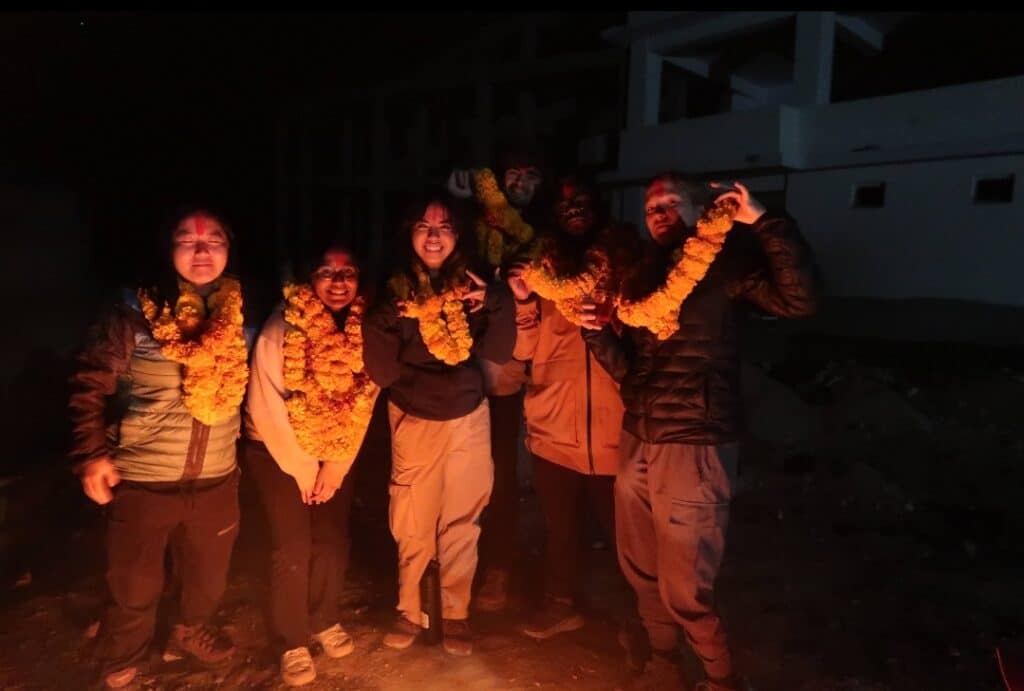
I am very grateful to the Shine On Scholarship for making this scholarship and the whole study abroad experience possible. I received the Shine on Scholarship for the Nepal study abroad program. Thank you! It was an incredible experience and I made memories that I treasure deeply.
Hirani’s advice for new GREENies:
For students considering studying abroad, I would recommend looking at a multitude of different funding options. If the student is attending college, the university generally provides scholarships for study abroad programs. These scholarships can be at the department level, the school level (college of engineering/ college of science), and even at the university level.
Some universities have clubs that also provide funding options/ lower-cost (sometimes even fully funded) trips for students that could be a great venue to explore different projects (ex. Engineers without Borders). Outside of the university, I would recommend looking at scholarships online – websites/ study-abroad funding organizations that have open scholarship applications. I would also recommend looking at scholarships offered by the specific study abroad program the student is applying to and reaching out to your study abroad organization to see if they have funding options. If the student is interested in a specific program but is unable to fund it, I would reach out to the specific program’s coordinator and check if they have options.
